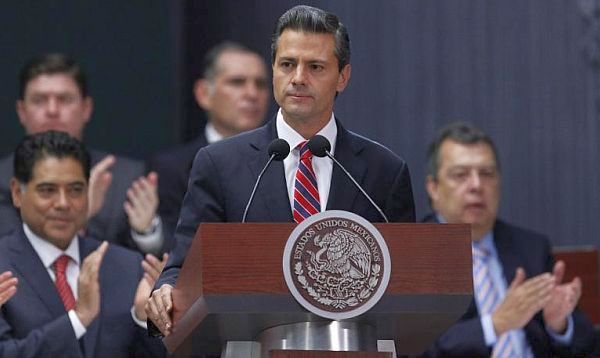Mexico City, Mexico - Mexicoís Senate increased a proposed levy on junk food last Friday as it passed a tax bill that reduces the nationís dependence on oil revenue and promotes growth, according to President Pena Nietoís administration.
The Senate voted to impose an 8 percent tax on high-calorie foods instead of the 5 percent originally approved by the lower house. The move compensated for their decision to reduce the already approved increase in income taxes for some earners.
The lower house will now have to vote again on the bill.
Pena Nieto plans to lift growth, which slowed more than the government expected this year, by reducing taxes on the oil industry to attract more private investment. State-owned Petroleos Mexicanos, or Pemex, has been unable to reverse a drop in oil output in each of the last eight years. Pemex currently funds 34 percent of Mexico's federal budget.
The nation is attempting to reduce adult obesity, which at 32.8 percent is the highest among major countries after Egypt and compares with 31.8 percent in the US, according to the United Nations Food and Agriculture Organization.
The tax bill "reduces the fiscal dependence on oil revenues and reduces tax loopholes," Gabriel Casillas, chief Mexico economist and head of research at Grupo Financiero Banorte, in an e-mailed response to questions before the Senate vote. The reform is "strengthening Mexicoís public finances."
The Senate lowered the income tax for those who earn between $500,000 pesos ($38,488) and $750,000 pesos per year to 30 percent from 31 percent approved by the lower house last month. The measure still raises the income tax ceiling to 35 percent from 30 percent for high earners and leaves untouched a new tax on sugary drinks of 1 peso per liter passed by the house.
The National Soft Drink Producers Association, which includes Coca-Cola Femsa and Arca Continental, Latin Americaís biggest Coca-Cola bottlers, estimates that a 1 peso per-liter soda tax would result in the loss of 20,000 jobs, from workers who cut sugar cane to those in factories.
Mexico's Grupo Bimbo - the world's largest baking company whose products include bread, rolls, cookies, biscuits, cakes, sweets, chocolates, and snacks - is reviewing the option of "reformulating" some of its products to lower their caloric density, Chief Executive Officer Daniel Servitje said.
The Senate also left unchanged the houseís approval of a 10 percent tax on capital gains, a 7.5 percent duty on mining company profits, and an increase in sales taxes in border regions to 16 percent from 11 percent, bringing them in line with the rest of the country.
The opposition Democratic Revolution Party, or PRD, said it reached a last-minute agreement with the Finance Ministry to change the bill in the Senate as the deadline loomed for passage of the 2014 revenue portion of the nationís budget.
Analysts forecast the economy will grow 1.2 percent this year from 3.9 percent in 2012 after the government reduced spending in the first half and exports to the US stagnated, according to an October 22nd survey by Citigroup Inc.ís Banamex unit.
Original Story


